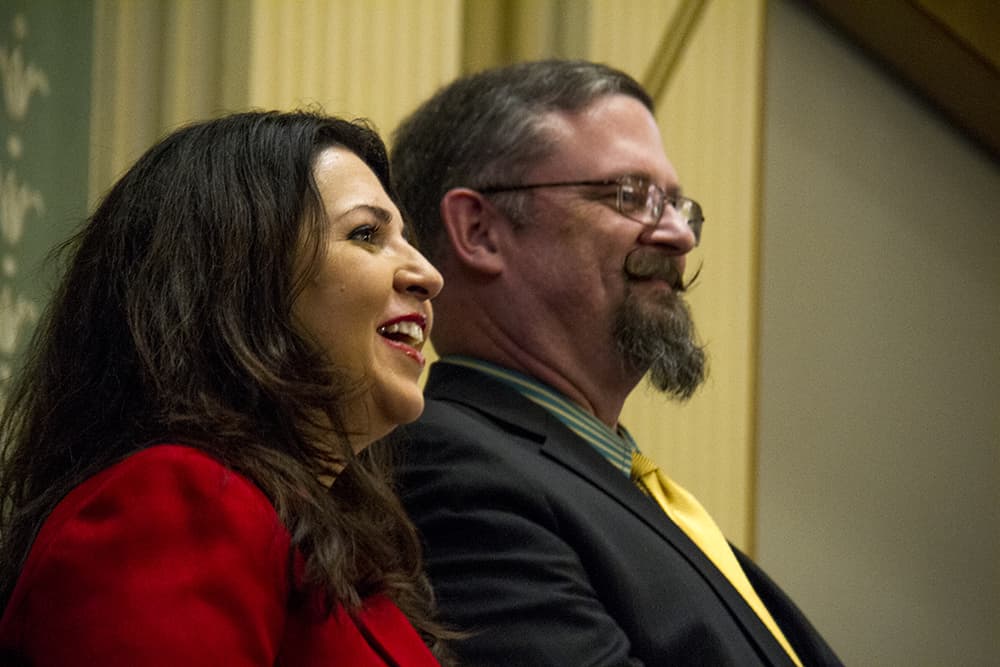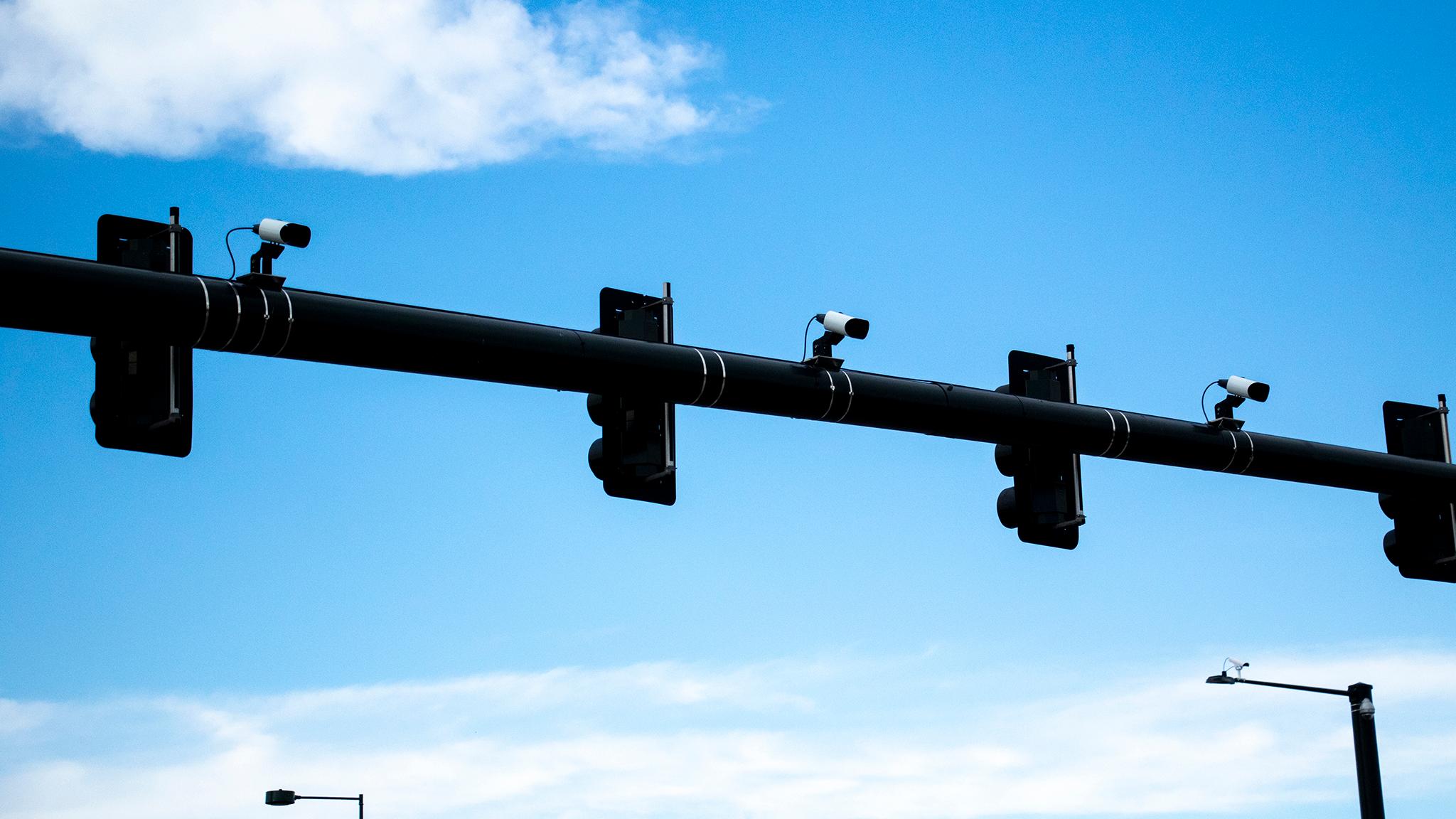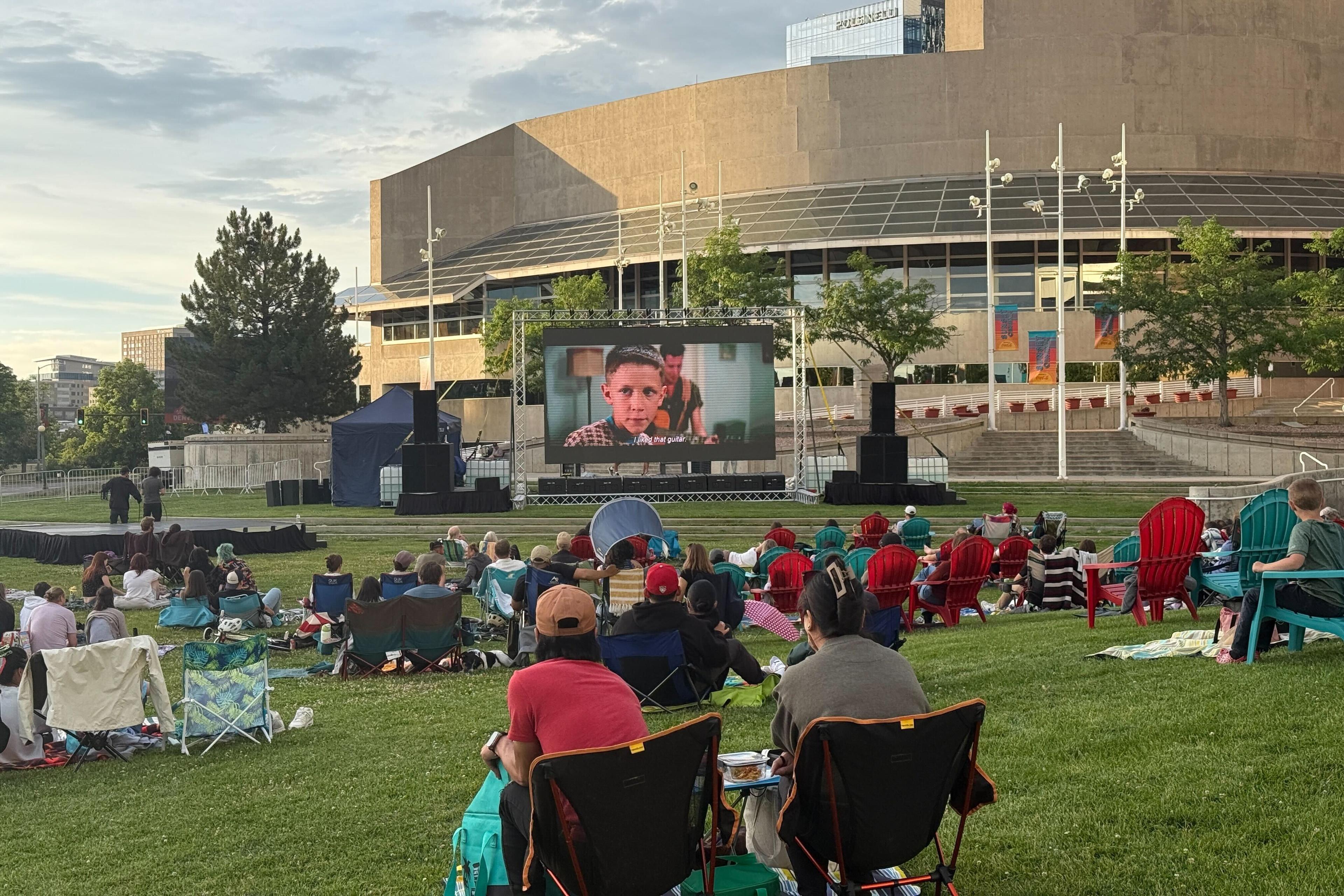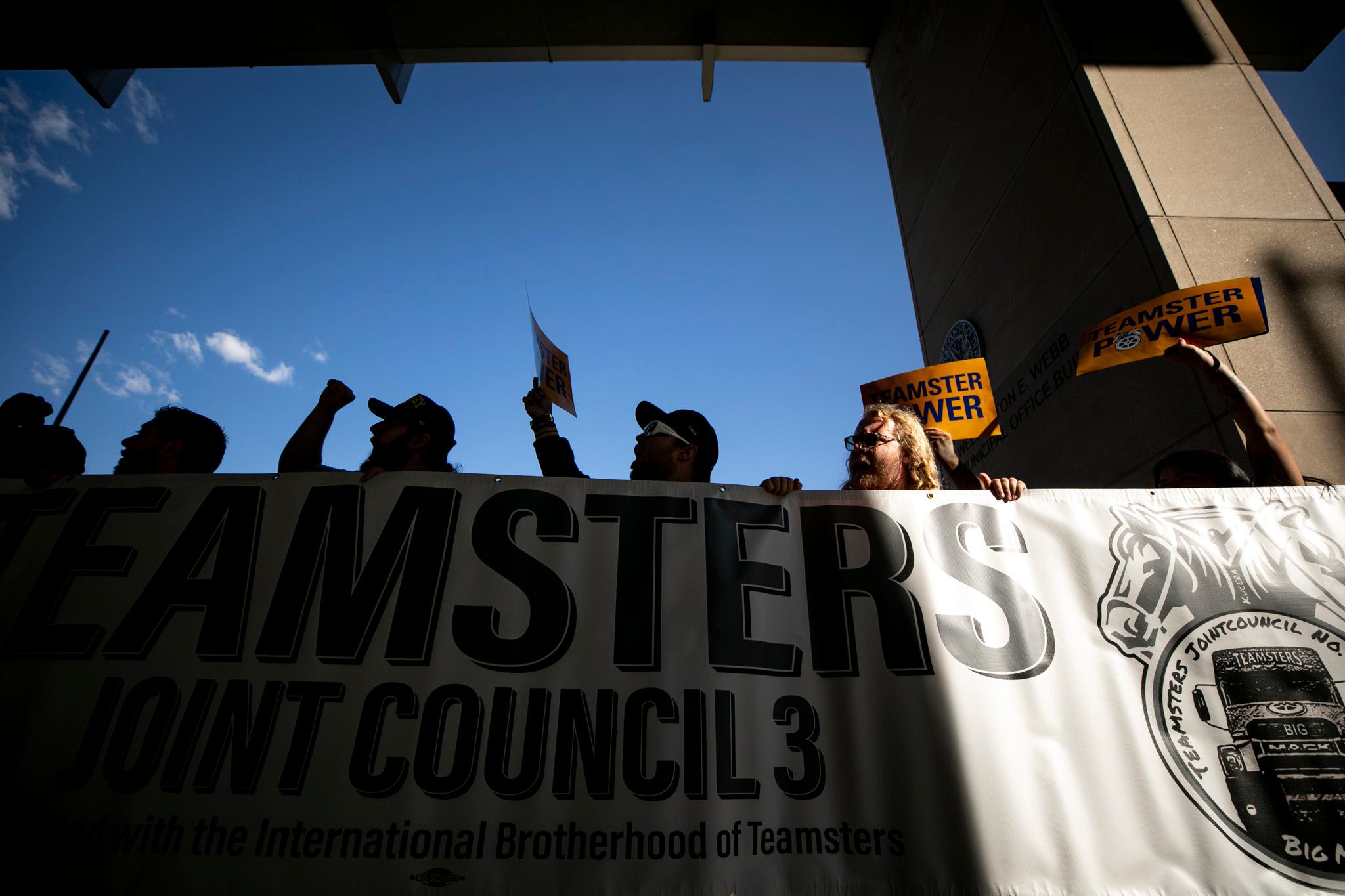
This was the deal that Colorado legislators and Gov. John Hickenlooper named as one of their top priorities for the 2017 session -- a new funding source for roads and transit to start chipping away at the potholes and traffic jams that plague the state.
It died Tuesday evening in a 3-2 party line vote in the Senate Finance Committee. That means it won't go to the Senate as a whole, where it may well have passed, and it won't go to the voters in November.
The bill called for a 0.5 percent increase in the state sales tax for 20 years (that's less than the 0.62 percent increase that passed the state House because Republicans in the Senate Transportation Committee amended it) and a $100 million annual allocation from the general fund to support a $3.5 billion bond program. About half would have gone to CDOT and the other half would have been divided between local communities and transit projects.
Senate President Kevin Grantham, a Cañon City Republican, had put his name on the bill as co-sponsor, along with fellow Republican Sen. Randy Baumgardner, chair of the transportation committee, Speaker of the House Crisanta Duran and Rep. Diane Mitsch Bush, the Democratic chair of the House Transportation Committee. It passed the House with four Republican votes.
But Grantham indicated last week he did not have the votes to get the bill out of the finance committee, where Sens. Tim Neville of Littleton, Owen Hill of Colorado Springs and Jack Tate of Centennial said it was the wrong solution, that they couldn't ask voters to think about paying higher taxes until the state legislature had done more to realign its own spending priorities.
In a heartfelt plea to the committee, Baumgardner said he had returned to the legislature for another term primarily to work on this vexing issue of transportation funding. If the state had the money within the existing budget, it would have allocated that money already, he said. Instead, even the money the legislature promised to give to CDOT under previous legislation gets chipped away to meet other needs.
The recriminations came quickly on social media and in statements emailed to reporters' inboxes.
“Democrats were ready to give the people of Colorado the opportunity to make their choice on transportation funding, but the Senate Republicans on the Finance Committee today obviously think they know better than their constituents," Sen. Nancy Todd, an Aurora Democrat said. "It is very sad to me that the Senate Republicans not only didn’t unite behind their President and the Chair of the Senate Transportation Committee to give the voters a choice, but immediately sided with big-money groups like Americans for Prosperity who have their own regressive agenda."
Rep. Michael Foote, a Lafayette Democrat, blamed "one out-of-state special interest." That would be Americans for Prosperity, a Koch Brothers-funded group that wants smaller government and lower taxes. The group, whose support or opposition counts for a lot in Republican primaries, came out strongly against the bill.
Michael Fields, the group's Colorado director, shot back at Foote that it was actually the deal's supporters -- mayors, county commissioners, chambers of commerce, environmentalists and representatives of many business groups from around the state -- who represented special interests.
So is that it? No new roads funding?
Not necessarily, but this is a major setback. There are just 11 working days left in the 2017 session. While it's not literally impossible for some new deal to be worked out, it's not likely.
In a statement emailed to reporters after the vote, Grantham tried to look forward, if not to November, then to 2018.
"When we started down this road, my goal was to put a bipartisan transportation package before voters that would help Colorado catch up on a road modernization backlog that cries out for prompt but thoughtful action," he said. "And while that goal thus far has proved elusive, just as I repeatedly warned it might, the debate this bill generated will move us closer to finding the ultimate answer by clarifying what the major sticking points are.

"The 71st General Assembly won’t complete its work until May 2018, so we’ll keep working on the issue, through this session and next, unless something is put on the ballot in the meantime that can win voter support," Grantham continued. "While I’m disappointed by this particular vote, I remain confident that the work we did on this issue won’t go to waste and will move us closer than we were before to the fix we all seek."
Duran similarly called for continued conversation.
“Collaboration and problem solving should always be more important than politics," she said in a statement. "I pledge to continue to seek transportation solutions that help us remain economically competitive and support our superb quality of life."
Fix Colorado Roads, a group representing chambers of commerce and economic development around the state, said whatever comes next needs to have more transparency about the projects it funds and strike a different balance between roads and transit. The wrong deal wouldn't pass muster with voters. The group had withheld its endorsement to seek changes to the bill.
Other groups could bring transportation funding measures to the ballot.
Going through the legislature isn't the only way to put a measure before voters. Paperwork has been filed with the Colorado Secretary of State for competing measures, one of which follows the language of the just-defeated HB-1242. The other, from the libertarian Independence Institute, calls for a $2.5 billion bond program to be paid out of existing revenue. It doesn't include funding for transit or local communities.
Jon Caldara, executive director of the Independence Institute, thinks that if his measure is on the ballot, any tax increase is doomed. That hasn't stopped members of the Institute from challenging the tax increase measure to try to keep it off the ballot.
Caldara sees roads funding as a simple matter of political will. In his view, state government is doing lots of stuff it shouldn't be doing, whether that's paying for inter-city bus service or expanding Medicaid eligibility, and if it funded the "core function" of roads first, there would be enough money.
"The reason our roads suck is the state is not spending money on this core function," he said.
Rep. Millie Hamner, the Democratic vice chair of the Joint Budget Committee, said a mandate to spend more money on transportation without a new funding source would just exacerbate the challenging budget situation. Amendment 23 requires the state to increase spending on education each year, and K-12 education is taking up a larger and larger share of the budget. At the same time, the state doesn't even fully fund its obligation, instead applying a "negative factor" to reduce the amount that would otherwise go to schools.
"People say, 'Gee, if we only cut 1 percent from each department or 2 percent from each department, we would have enough money,'" she said. "That would mean that at a time when Colorado is growing, we would be cutting services."
There's also one more bill to fund transportation, on life support but not dead yet.
SB-267, sponsored by Sen. Jerry Sonnenberg, a Sterling Republican, and Senate Minority Leader Lucia Guzman, a Denver Democrat, has been delayed repeatedly in the Senate Appropriations Committee after passing the Finance Committee.
This is a potentially significant piece of legislation that would reclassify the hospital provider fee, a fee on patient revenue that is matched by federal funds and redistributed to hospitals for Medicaid patients, into an enterprise fund. That would take it out of the regular budget and free up money for other uses. However, Republicans want to see the revenue cap required by the Taxpayer's Bill of Rights reduced in exchange for reclassifying the fee, and the whole thing has been on the verge of falling apart for about week.
This bill also generates $1.2 billion for transportation, with a focus on fixing rural roads, by issuing debt backed by state-owned buildings.
Guzman has been optimistic that Appropriations will hear the bill this week, and she used the failure of HB-1242 to urge her colleagues to consider the bill seriously.
“It is now more important than ever the Senate approves moving the hospital provider fee into an enterprise fund," she said in a statement. "Senate Bill 267 not only would arguably save hospitals, but could actually dedicate some funding for transportation projects in rural Colorado. If the 2017 Colorado General Assembly comes away without funding priorities for transportation and rural hospitals, we will have failed our citizens."











